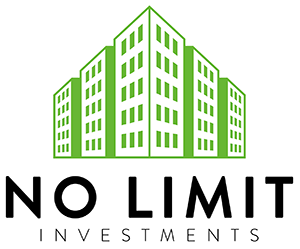What Are Multi-Unit Residential Property Loans?
Multi-unit residential property loans are financing options that allow investors to purchase, refinance, or develop properties with multiple rental units, such as duplexes, triplexes, and apartment buildings. These loans are designed to help real estate investors expand their portfolios while creating consistent income streams. Compared to traditional single-family mortgages, multi-unit property loans often involve larger loan amounts, more complex underwriting requirements, and greater potential for long-term wealth accumulation (U.S. Department of Housing and Urban Development).
For investors aiming to diversify their holdings, multi-unit residential property loans can serve as the foundation for steady cash flow, tax advantages, and scalable investment growth. However, navigating these loans successfully requires understanding the requirements, risk factors, and the types of financing available from lenders specializing in real estate investments.
Why Are Multi-Unit Properties Attractive to Real Estate Investors?
Multi-unit properties are attractive because they allow investors to maximize rental income while minimizing risk. When multiple tenants occupy one property, the likelihood of full vacancy decreases, offering greater stability in monthly revenue. Moreover, investors can benefit from economies of scale, meaning that maintenance, insurance, and management costs per unit tend to be lower when spread across multiple tenants.
Additional advantages include:
- Diversified income: Even if one unit is vacant, others generate income.
- Appreciation potential: Multi-unit properties often appreciate faster due to location and market demand.
- Portfolio scalability: A single purchase increases total units under management, accelerating growth.
This form of investment aligns well with services such as Buy & Hold Mortgages and BRRRR Financing offered by No Limit Investments, which help investors acquire, rehab, rent, and refinance properties strategically to build long-term wealth.
What Are the Common Types of Multi-Unit Residential Property Loans?
Investors can choose from several types of loans based on their strategy, financial goals, and creditworthiness:
- Conventional Loans: Offered by traditional lenders for properties with up to four units, typically requiring strong credit and documentation.
- Commercial Real Estate Loans: Used for properties with five or more units, these often consider the property’s income potential rather than personal income.
- DSCR Loans (Debt Service Coverage Ratio): Focused on cash flow, these loans evaluate whether a property’s income covers its debt obligations—a service also offered through No Limit Investments.
- Bridge Loans: Short-term financing that helps investors acquire a property quickly while preparing for long-term financing.
- New Construction Loans: Ideal for investors building multi-unit properties from the ground up, helping fund both construction and eventual conversion into permanent financing.
Each loan type serves a unique role depending on whether the investor is acquiring, improving, or expanding multi-unit properties. Partnering with a company that provides diverse real estate financing solutions, such as No Limit Investments, ensures access to multiple funding strategies tailored to an investor’s goals.
What Qualifications Do Investors Need to Secure These Loans?
Lenders use specific criteria to evaluate loan applicants for multi-unit residential properties. These qualifications generally include:
- Credit Score: A minimum score of 680 is common, but requirements vary by lender.
- Down Payment: Typically ranges from 20% to 30% of the purchase price, depending on the property type and loan program.
- Debt-to-Income Ratio: Lenders assess whether borrowers can handle new debt alongside existing financial obligations.
- Experience: Prior real estate investment or property management experience can increase approval odds.
- Cash Reserves: Proof of liquidity to cover several months of mortgage payments is often required.
Investors uncertain about meeting these qualifications can explore Credit & Debt Advisory and Business Credit Facilities provided by No Limit Investments to strengthen their financial standing and improve loan eligibility.
How Can Investors Increase Their Chances of Loan Approval?
To improve approval odds, investors should take strategic steps to present themselves as low-risk borrowers. The following actions can significantly boost credibility with lenders:
- Prepare a detailed business plan: Include projected rental income, maintenance costs, and market analysis.
- Document consistent income: Demonstrate the ability to manage existing properties or other income-generating assets.
- Enhance property value: Through renovations funded by Fix & Flip Loans or Cash-Out Refinance programs.
- Maintain strong personal and business credit: Ensure credit reports are accurate and debt levels are manageable.
- Build relationships with investment-focused lenders: Working with professionals who specialize in real estate portfolios helps streamline the process.
By combining preparation with professional support, investors create a compelling loan profile that appeals to both private and institutional lenders.
What Are the Benefits of Using Professional Financing Partners?
Partnering with a financing partner that understands investor-specific needs can make a significant difference in outcomes. For example, companies that specialize in real estate funding, like No Limit Investments, offer a holistic approach through tailored programs such as Fix & Flip Loans, BRRRR Financing, DSCR Loans, and New Construction Loans. These services cater to various stages of an investor’s journey, from property acquisition to expansion.
Professional financing partners also provide:
- Customized loan structures that align with investment goals.
- Advisory support for improving loan terms and understanding underwriting requirements.
- Portfolio growth strategies through Growth & Development Services that help investors scale sustainably.
Ultimately, working with an experienced financing company simplifies complex lending processes and ensures that investors secure the best possible terms for their multi-unit residential property loans.
How Does Loan-to-Value Ratio Affect Multi-Unit Property Financing?
The loan-to-value (LTV) ratio plays a crucial role in determining loan eligibility and terms. It measures the proportion of the loan amount compared to the property’s appraised value. For example, if a property is valued at $1,000,000 and the loan amount is $750,000, the LTV ratio is 75%.
Lower LTV ratios signal lower risk to lenders, often leading to better interest rates and flexible repayment structures. To reduce LTV, investors can:
- Increase the down payment amount.
- Improve property value through renovations.
- Use a Cash-Out Refinance to leverage equity in existing assets.
Understanding LTV also helps investors assess their leverage position, balancing growth potential with financial safety.
What Should Investors Consider Before Expanding Their Multi-Unit Portfolio?
Before purchasing additional properties, investors should assess financial capacity, market conditions, and risk management. Some essential considerations include:
- Location trends: High-growth areas yield better returns and attract long-term tenants.
- Operating costs: Include taxes, insurance, utilities, and management fees.
- Vacancy rates: Understand local demand to maintain consistent occupancy.
- Financing options: Explore Buy & Hold Mortgages, BRRRR Financing, and Real Estate Financing Solutions to support sustainable expansion.
- Exit strategy: Define whether properties will be held for long-term income or sold after value appreciation.
A well-structured plan backed by diversified funding solutions helps investors scale efficiently while maintaining healthy cash flow.
How Can Strategic Financing Help Investors Build Long-Term Wealth?
Multi-unit residential property loans are more than just a funding tool—they are a foundation for long-term financial independence. By strategically combining various loan types, investors can optimize cash flow, reduce risks, and maximize property appreciation.
For example:
- BRRRR Financing enables investors to recycle capital after rehabbing and refinancing.
- DSCR Loans ensure cash flow sustainability across multi-unit investments.
- Business Credit Facilities provide flexible working capital for maintenance, marketing, or tenant upgrades.
- Growth & Development Services help investors plan for expansion through professional guidance and capital support.
These strategies, offered through No Limit Investments, empower investors to scale with confidence and precision.
Why Should Investors Partner with No Limit Investments?
Securing multi-unit residential property loans requires more than just financial qualification; it demands insight, strategy, and partnership. No Limit Investments stands out by providing personalized guidance, a range of tailored loan programs, and access to tools that help investors grow their portfolios strategically.
Whether you are purchasing your first duplex or expanding into a large apartment complex, No Limit Investments offers solutions like Fix & Flip Loans, Buy & Hold Mortgages, New Construction Loans, and Cash-Out Refinance options—each designed to meet specific investment goals.
How Can You Start Building Your Multi-Unit Investment Portfolio Today?

If you are ready to expand your real estate portfolio and explore flexible financing tailored to your needs, connect with No Limit Investments today. Their team specializes in helping investors secure multi-unit residential property loans that align with both short-term goals and long-term success.
Explore personalized loan options and professional guidance by visiting https://nolimitinvestments.net/.
Final Thoughts
Multi-unit residential property loans provide investors with powerful tools for wealth creation, steady cash flow, and portfolio diversification. Success, however, depends on understanding loan structures, qualification criteria, and the strategic use of financing options.
By leveraging the full range of services from No Limit Investments, including BRRRR Financing, DSCR Loans, and Real Estate Financing Solutions, investors can navigate the complexities of multi-unit lending with confidence. With proper planning, financial discipline, and the right lending partner, real estate investors can unlock limitless opportunities for growth and long-term prosperity.
Works Cited
U.S. Department of Housing and Urban Development. Multifamily Housing Overview. HUD.gov, 2024, https://www.hud.gov/program_offices/housing/mfh.
Federal Housing Finance Agency. Multifamily Property Loan Eligibility. FHFA.gov, 2024, https://www.fhfa.gov/.
National Association of Realtors. Real Estate Investment and Financing Report. NAR Research, 2023, https://www.nar.realtor/.
Frequently Asked Questions
1. What is a multi-unit residential property loan?
A multi-unit residential property loan is a financing option designed for investors purchasing or refinancing properties with two or more units. It helps build steady rental income and portfolio growth.
2. How many units can I finance with one loan?
Typically, conventional loans cover up to four units, while commercial and DSCR loans can finance properties with five or more units, depending on the lender’s guidelines.
3. What credit score do I need for approval?
Most lenders require a credit score of at least 680, but investors with lower scores can strengthen eligibility by improving debt ratios or using Credit & Debt Advisory services from No Limit Investments.
4. Can I use a cash-out refinance for multi-unit properties?
Yes. A Cash-Out Refinance allows investors to pull equity from existing assets to fund renovations or new purchases—an effective way to scale through No Limit Investments’ loan programs.
5. What is the best loan type for first-time investors?
First-time investors often start with Buy & Hold Mortgages or BRRRR Financing to establish consistent income and equity. No Limit Investments offers tailored guidance for these strategies.







